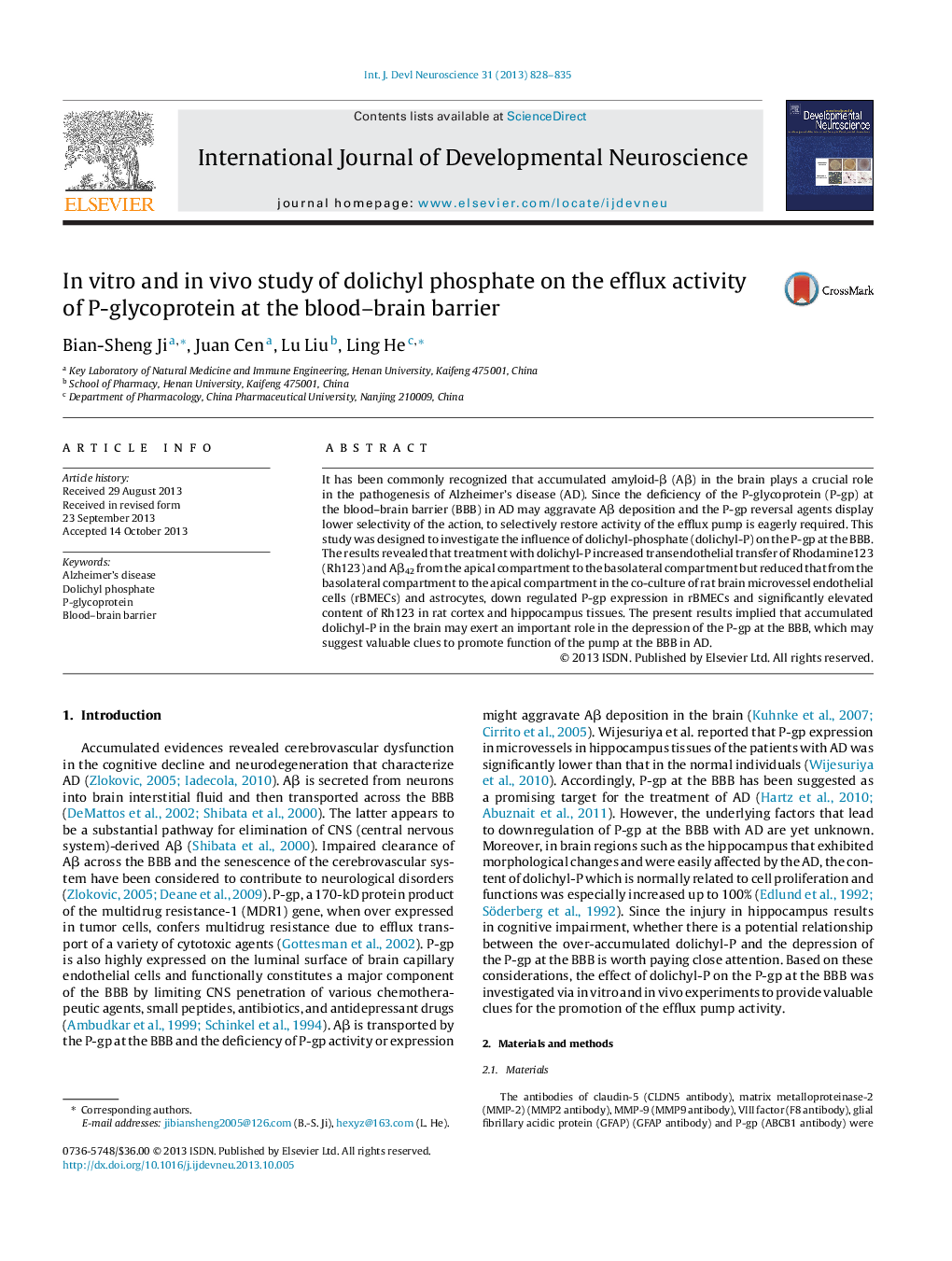| Article ID | Journal | Published Year | Pages | File Type |
|---|---|---|---|---|
| 2786164 | International Journal of Developmental Neuroscience | 2013 | 8 Pages |
•Dolichyl-P down regulated P-gp activity and expression in rBMECs after incubation both in the apical compartment and in the basolateral compartment of the co-culture system.•Dolichyl-P increased content of Rh123 in rat cortex and hippocampus tissues.•Accumulated dolichyl-P in the brain may exert an important role in the depression of the P-gp in AD.•Present report may suggest valuable clues to promote function of the P-gp at the BBB in AD.
It has been commonly recognized that accumulated amyloid-β (Aβ) in the brain plays a crucial role in the pathogenesis of Alzheimer's disease (AD). Since the deficiency of the P-glycoprotein (P-gp) at the blood–brain barrier (BBB) in AD may aggravate Aβ deposition and the P-gp reversal agents display lower selectivity of the action, to selectively restore activity of the efflux pump is eagerly required. This study was designed to investigate the influence of dolichyl-phosphate (dolichyl-P) on the P-gp at the BBB. The results revealed that treatment with dolichyl-P increased transendothelial transfer of Rhodamine123 (Rh123) and Aβ42 from the apical compartment to the basolateral compartment but reduced that from the basolateral compartment to the apical compartment in the co-culture of rat brain microvessel endothelial cells (rBMECs) and astrocytes, down regulated P-gp expression in rBMECs and significantly elevated content of Rh123 in rat cortex and hippocampus tissues. The present results implied that accumulated dolichyl-P in the brain may exert an important role in the depression of the P-gp at the BBB, which may suggest valuable clues to promote function of the pump at the BBB in AD.
